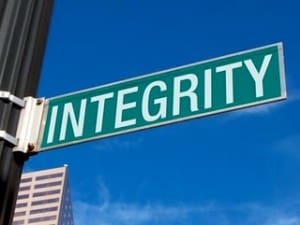 Imagine that you’ve just inherited the majority stock position in a major company. The company is struggling and has been for years. Based on your observations, there’s a strong culture of apathy and selfishness, as well as a lack of direction and values.
Imagine that you’ve just inherited the majority stock position in a major company. The company is struggling and has been for years. Based on your observations, there’s a strong culture of apathy and selfishness, as well as a lack of direction and values.
Now it’s your responsibility to turn it around.
Realizing that the task is too big to accomplish on your own, you set out to hire “the best and the brightest” to help you change the culture of the beleaguered company.
Which way do you go when trying to find the right people? The top shining stars from the best business schools in the country? How about proven executives that have shown a knack for returning high profits? Some mix of the two?
Some might say it’s innovation that you need, and tell you that securing some up-an-coming executives who are just waiting to knock one out of the park would be the way to go.
Others might tell you the negative culture that you’re facing will require the experience that only a proven leader can handle.
As we look at our next qualification for the executive-leader, we come to, “not a recent convert”. In the church this one may be fairly simple to decipher. A recent convert may have the passion and drive to change the world, but they don’t have the stamina of faith that’s required for someone in the higher levels of leadership in the church.
If we translate this qualification into a business principle, does it mean that the answer to our problem (above) is to simply hire the older, more proven executives? After all, they are the ones who’ve built up the track record.
I believe it all depends on how deep you want to take your definition of “recent convert.”
Some people may look at this and simply think of one’s experience as a leader being the key. But I believe that it goes deeper than that. A “convert” to Christianity is someone who is committing themselves to a whole new set of moral standards. When we’re talking about someone who’s “not a recent convert,” we are talking about someone who has a track record of the values that you connect with.
This means that you need to decide first of all what values are important to you. If you have, and wish to implement, a culture of selflessness, then you must look for someone who has a track record of being selfless. This could be the young-gun fresh out of business school, or the long-time executive. Either one of these candidates can possess a track record of the values that you desire.
But what does this mean to you?
This qualification isn’t about how to hire the right people. It’s about how to BE the right person.
The one thing I want you to understand is that in order to be a great leader, you need a good track record. I’m not talking about a good track record of successes and victories in the business world, but a track record of the values that you want to stand for.
This type of track record can come through many means, professionally and personally. However, it is definitely something that you have to work at developing.
Questions to consider:
- What values do you esteem?
- Which ones do you need the most work on?
- How can you start creating a track record of being the person that you desire to be?
- Which values would the people around you say that you are already good at?
- Which values would they say that you need to work on?
See more from the management by God series!


I value character the most. It can be a struggle at times to display character in a way that honors the kingdom of God. Two rcently published books have been really helpful: After You Believe by N. T. Wright; and Practice Resurrection by Eugene Peterson.
Living up to the values that we esteem can always be a struggle, but I think the reward for actually doing it is great!
Thanks for the references on the books! I’ll have to check those out! Let me know if you be interested in posting reviews on them here at BibleDude.net when you’re done reading them. I’d love to share your thoughts!